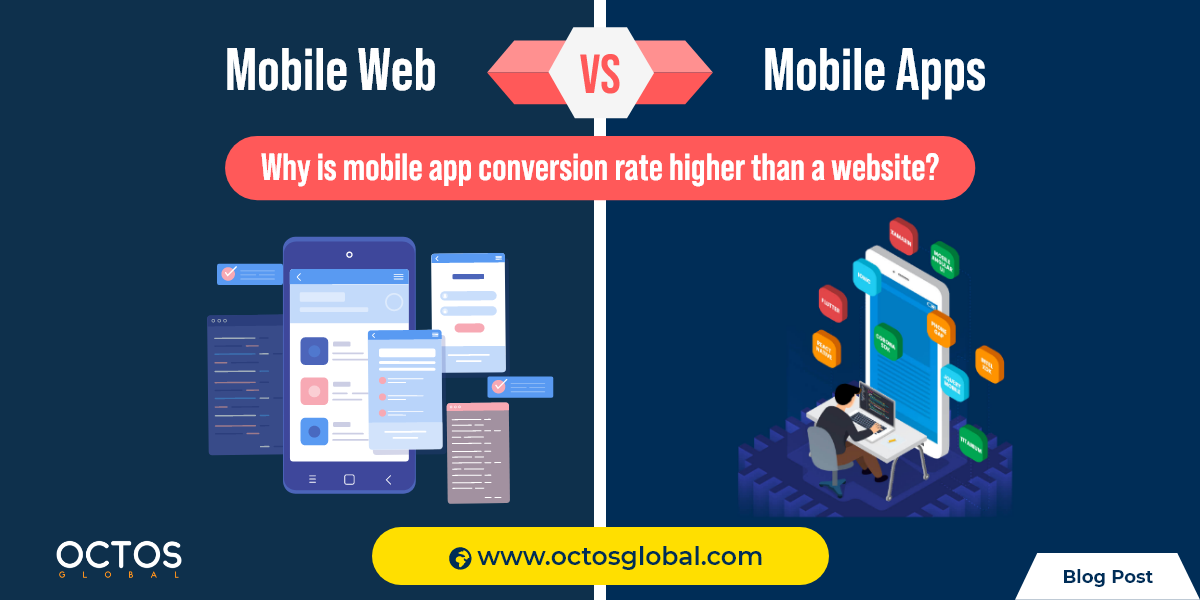Mobile users today outnumber desktop users! Business owners have thus realized the importance of reaching out to customers via mobile channels. Today, we are living in a mobile world. There are four billion unique mobile users across the globe. Mobile devices account for 52% of all Internet traffic worldwide. In the United States, 65% of digital content is consumed through mobile devices.
Since mobile devices have dominated the landscape for years, there is no sign that the trend will slow down in the near future. Businesses and websites have recognized these trends and implemented mobile-friendly designs on their websites. In this day and age, sites that are not mobile-friendly cannot thrive.
A mobile app converts 157% better than a mobile website. There is no doubt that you need a mobile app if you want to optimize your business, website, and brand for mobile users. You're missing out on a huge opportunity if you're solely depending on a mobile website to drive conversions. A mobile app is your best bet for increasing conversions.
The following are the reasons why mobile apps conversion rate is higher than a website:
1. Better Personalization: Customization improves conversion rates. Whether the consumer shops in stores, online or using any other device, this holds true. Location, demographics, behavior, and interest are factors that may be taken into account when personalizing. Your mobile app allows you to gather more real-time information about your users. By using that information, you can ultimately customize their experience. Apps will allow you to suggest products or services to users based on their activity or past purchases. 2. Generates High Customer Engagement: Email marketing click-through rates have declined drastically, while push notifications have improved to almost 40%. Brands now have the opportunity to engage with consumers without appearing intrusive, thanks to this important feature. 3. Easier Communication: Having clear communication is another factor that drives conversions. Most business communication tools use email, and this has been true for the last couple of decades. Email is one of the most widely used marketing strategies by businesses (and it is almost abused by some). Email, as a result, has lost the effectiveness it once had, with its open and click rates constantly declining. Email notifications have been surpassed by notifications from mobile apps. These notifications are of two types: push and in-app notifications. These two options are much less intrusive ways to reach out to users. 4. Enables users to Work Offline: This is perhaps the biggest difference between a mobile website and an app. Despite requiring internet connections to perform their tasks, apps can nevertheless provide their users with basic functionality even when they are offline. For instance, banking apps. There are features like tax calculation, installment calculation, and loan limit determination. Despite not having an internet connection, these features can still be used.Conclusion
Mobile users spend 86% of their time on mobile apps and just 14% of the time on mobile websites. In the era of global mobile usage, the "app vs web" debate will remain a very important consideration for organizations looking to establish mobile presences. Answering this question is always quite subjective. Moreover, keep in mind that native apps and mobile/responsive websites are not mutually exclusive. Many organizations have both mobile-friendly public websites and downloadable native applications for catering to specific needs. When it comes down to it, choosing the right tool is key.

